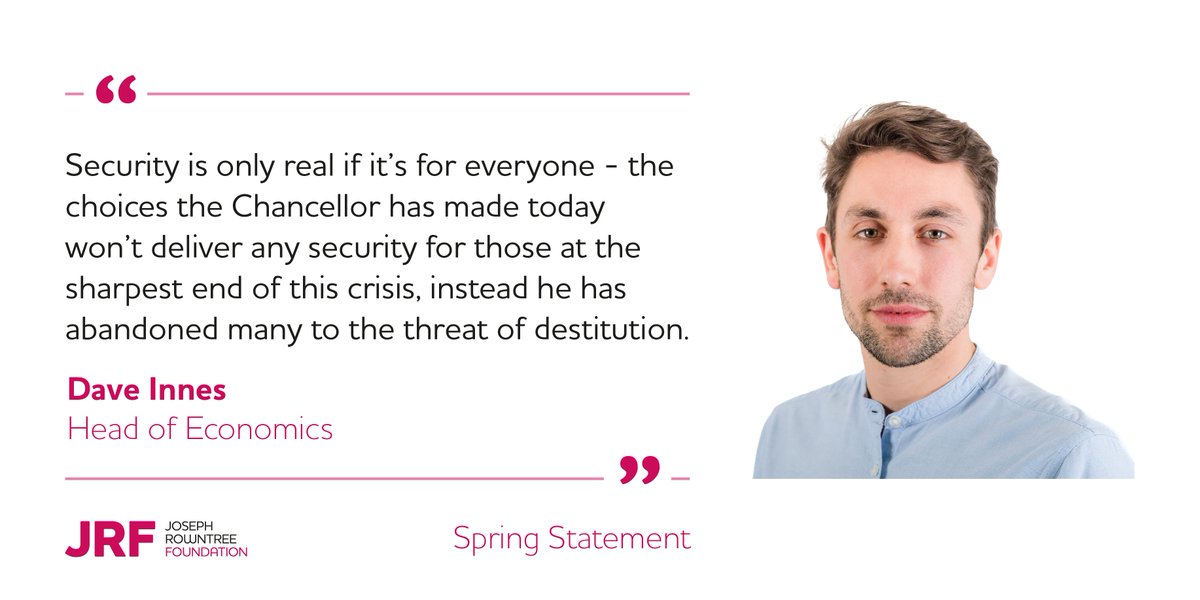
We live in one of the wealthiest countries in the world, but right now 90% of households receiving #UniversalCredit are going without essentials like food, utilities and vital household goods.
We can’t always deal with what life throws at us on our own, so we need to have a system that supports us all to afford the essentials while we recover from setbacks.
From April, Universal Credit will be set at £85 a week for a single adult, but there’s a significant gap between this and living costs. Our research shows that in order to cover the essentials, it must be increased to at least £120 a week. jrf.org.uk/report/guarant…
Join us and @TrussellTrust in calling on the government to guarantee that the basic rate of #UniversalCredit will always cover essentials such as food and heating, and ensure no one’s life is devastated by hardship. #OurEssentials trusselltrust.org/essentials
• • •
Missing some Tweet in this thread? You can try to
force a refresh








